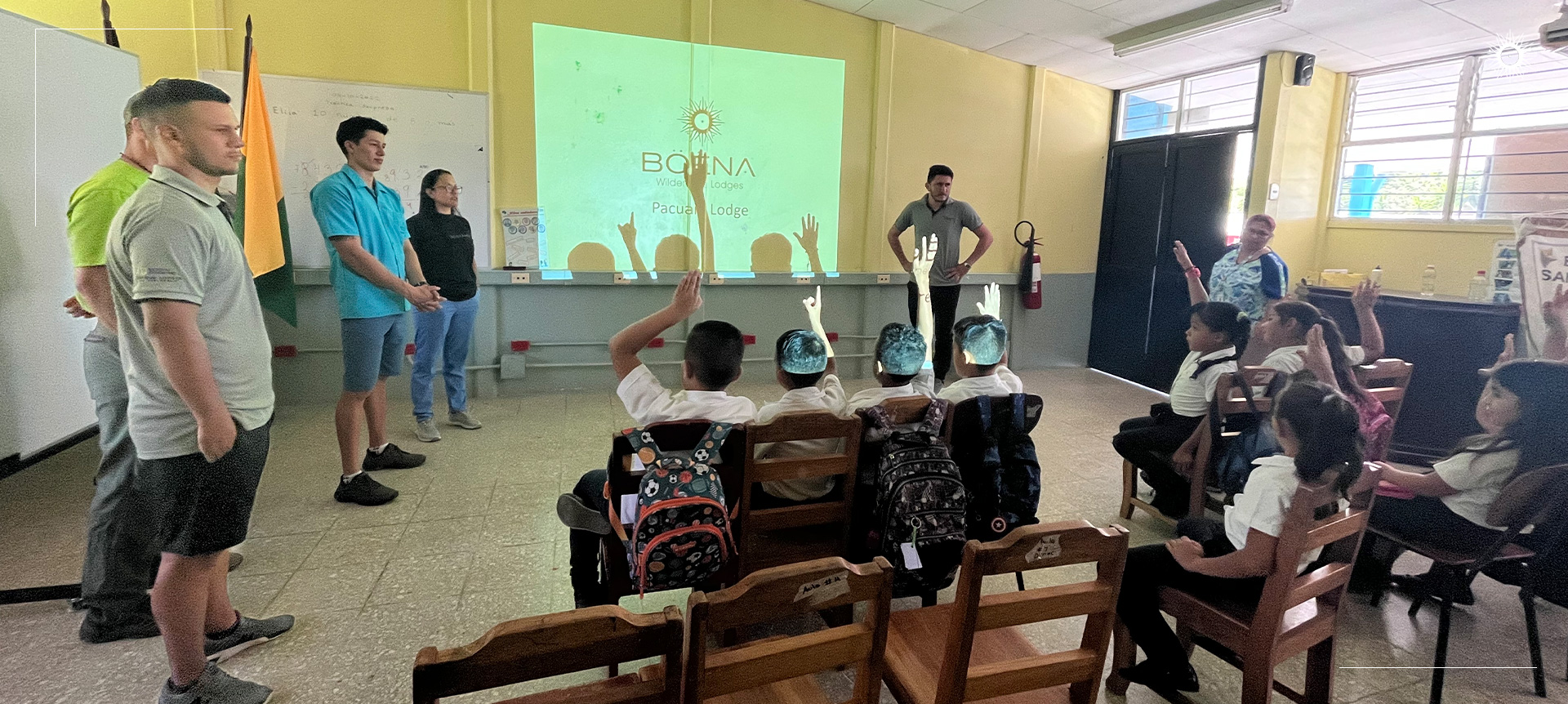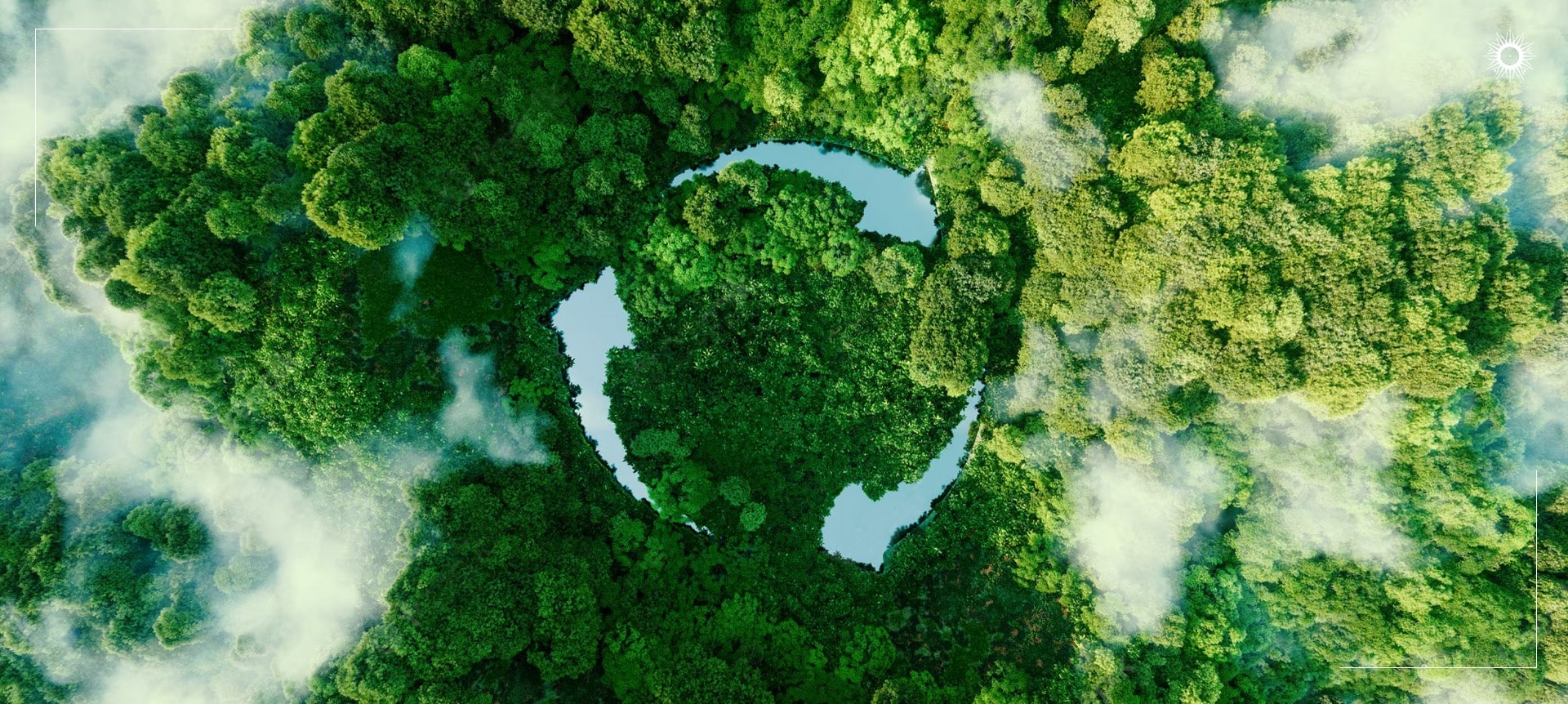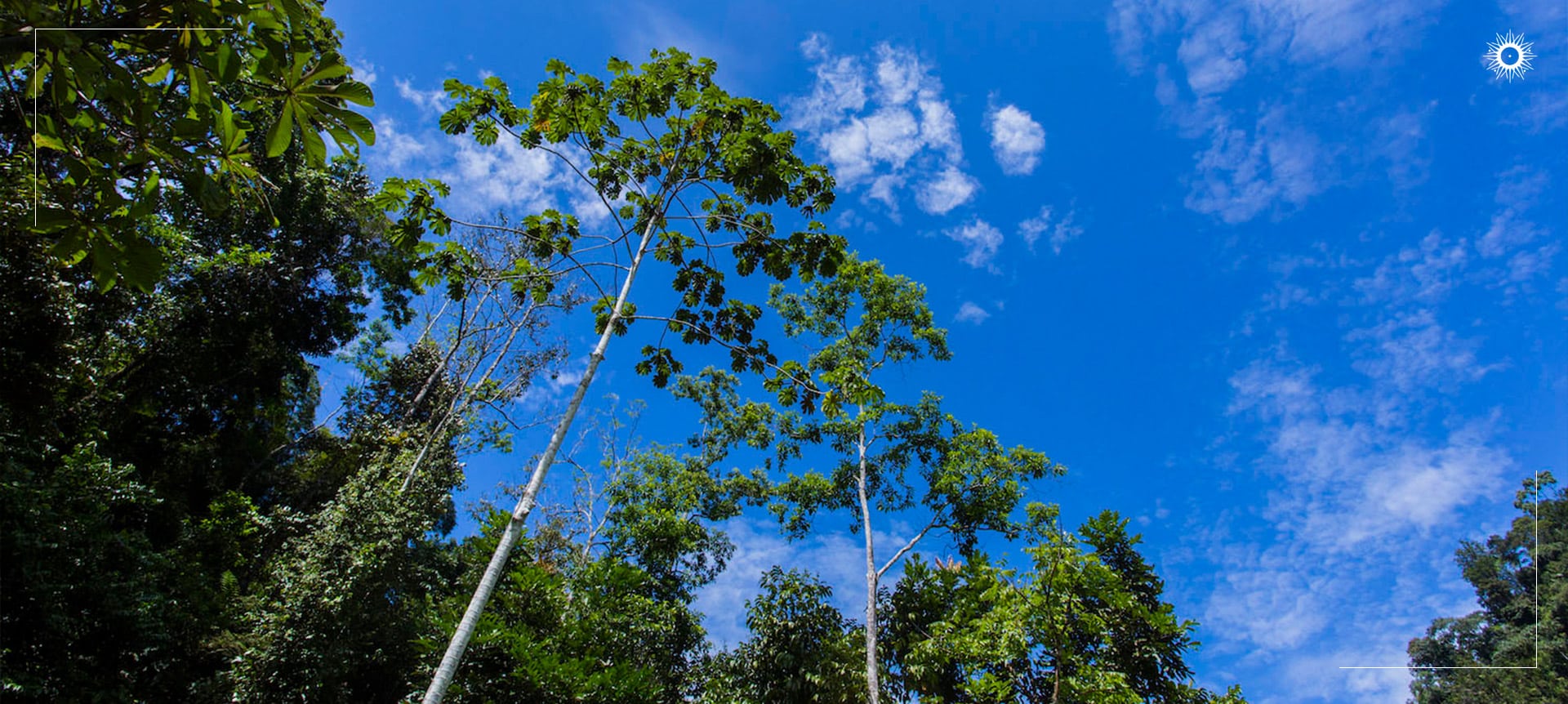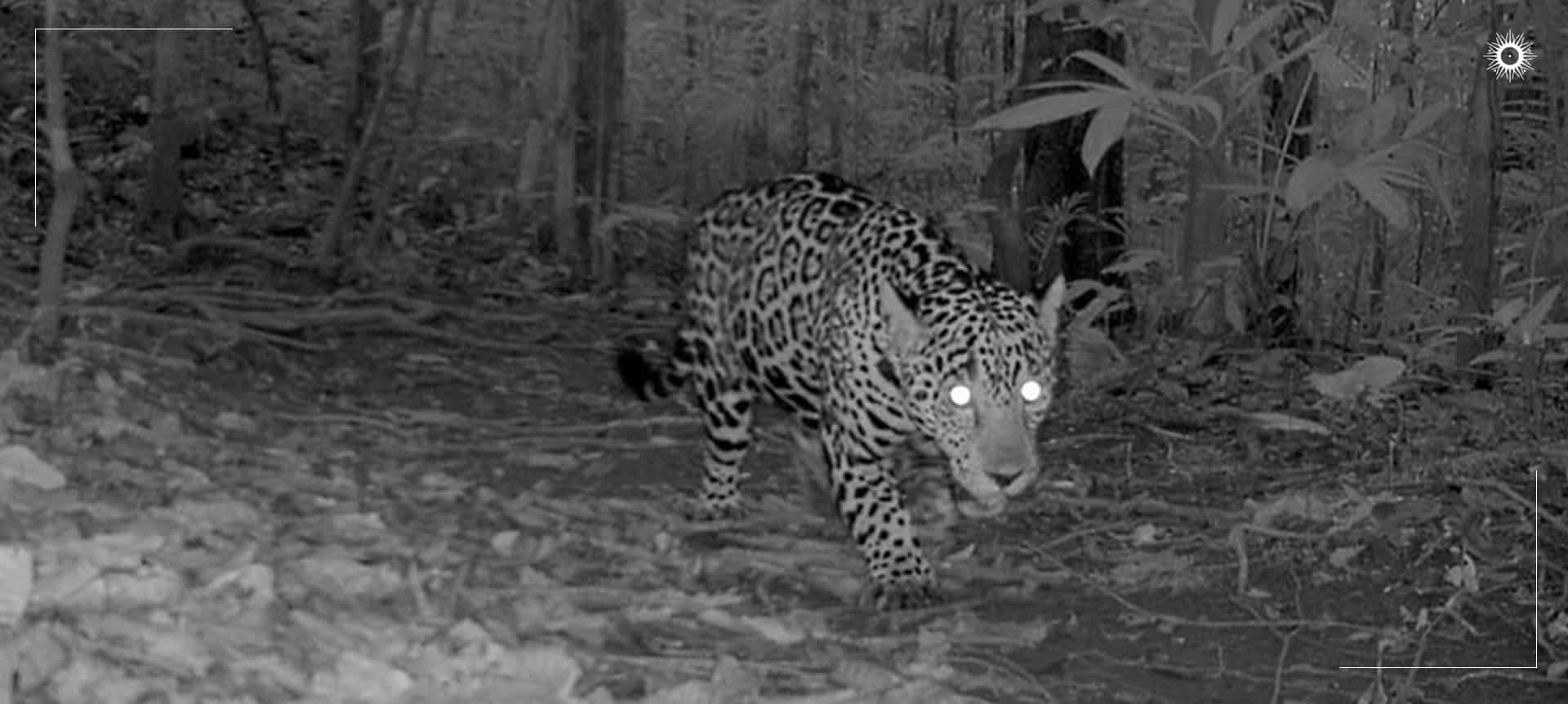Sustainability practices at
At Pacuare Lodge, we are dedicated to sustainable tourism. Our goal is to minimize the environmental impact of our operations while enhancing conservation and benefiting local communities. This commitment extends across all Böëna Wilderness Lodges: Lapa Ríos, Tortuga Lodge & Gardens, Monteverde Lodge & Gardens, and Cloud Forest Lodge. Learn more about our Sustainability Policy.
As pioneers in sustainable tourism in Costa Rica, we have implemented numerous initiatives to foster environmental and community development. We share our experiences and lessons with guests, staff, and local communities, proving that sustainable practices are both feasible and effective.

Costa Rica’s natural areas, including the Pacuare region, face various challenges. Limited development opportunities and a lack of environmental education threaten the balance between local communities and their environment. Tourism is vital for the survival and well-being of these communities.
To support nature during your stay, we charge a one-time $25/person Pacuare Lodge Conservation Support Fee—less than 1% of a standard vacation. This fee funds our sustainability programs. We regularly update guests on our progress through blogs, newsletters, and social media. Many guests are inspired to contribute further. Stay informed by subscribing to our newsletter at: www.boena.com/newsletter

Our Staff: Most Pacuare Lodge staff come from nearby communities such as Nairi Awari Indigenous Reserve, Bajos del Tigre, Linda Vista, and Santa Marta. Pacuare Lodge offers direct or indirect employment opportunities to these areas, where residents previously relied on subsistence farming and cattle raising. Through our Böëna Wilderness lodges, we cross-train staff to enhance skills and knowledge, fostering professional growth.
Community Outreach: Sustainable tourism should benefit local communities. At Pacuare Lodge, we support local development through donations and projects. We work to improve infrastructure and living standards along the Pacuare River. This includes supporting the Preventive Emergency System in Bajos del Tigre School and restoring the cable car service used by locals. We also provide funds for environmental education, sports, and social programs. Learn more about our donation for potable water at this link. Since 2023, we’ve supported Yamá Soccer School with training supplies for over 80 teenagers.
Children’s Education: We run an environmental education program for local schools, aiming to raise awareness about conservation among elementary students. Our presentations cover water protection, energy conservation, local flora and fauna, waste management, and biodiversity. Additionally, we offer training in guiding, English, and food handling for the Cabécar Indigenous population.
Turrialba Foundation: We founded the Turrialba Foundation, a non-profit dedicated to sustainable tourism and community development. Initially named Turrialba Sostenible, it gained local support and was officially registered as a foundation.

Cabécar Indigenous Culture Program: We support the Nairi Awari Indigenous group by providing resources for preserving their art and techniques. This includes job opportunities at the lodge and sharing their culture through the Cabécar Hike Experience.
Cabécar Ranch: Our Cabécar Ranch, built by local clan members, offers guests an authentic introduction to Cabécar culture and customs.
Cuisine: Our menu features traditional Costa Rican dishes like Pozol, Pejibaye soup, Casado, and Arroz con Leche. Guests can also try our craft beer. Learn more about our craft beer here.
Experiences: We promote local culture through nature, culinary, and cultural learning experiences, including birdwatching and our Sustainability Tour. Read more about fine dining at Böëna here. We also celebrate and support local artisans, inviting them to showcase their work to our guests. Discover more here.
Festivities: We encourage guests to engage in Costa Rican traditions, such as making tamales and celebrating Independence Day with “faroles” and traditional meals. Read about our tamale-making event here and our patriotic celebrations here.
Sustainable Design: Pacuare Lodge was built with minimal impact on the forest and river. No trees were cut for construction; we use lumber from a reforestation project by small farmers. Since 1995, our lodge has evolved while adhering to Böëna Wilderness Pillars.
Energy: Our electricity is sourced from clean energy: 3 hydroelectric turbines and 204 solar panels. Energy is stored in batteries for efficient use. We educate guests and staff on conserving water and electricity and use electric golf carts charged with our in-house clean energy.
Water: Suites feature solar-heated water via advanced solar panels. Wastewater is treated with state-of-the-art septic systems to prevent river pollution. We use biodegradable soaps and efficient laundry systems. We also conduct creek cleanups and support EM Spheres activities for water quality improvement. Learn more here.
Waste Management: We implement a waste management program that includes separating inorganic and organic waste. Organic waste is composted, and solid waste is managed at the local recycling center. We encourage guests to avoid single-use plastics and use reusable bottles.
Wildlife: Since 2009, Pacuare Lodge has supported the Jaguar Program in collaboration with National University. We provide food, lodging, and essential equipment for research, including cameras and local guides. The jaguar, once widespread, now faces threats from habitat loss and human activity. Our efforts include reducing our environmental footprint, benefiting local communities, and supporting conservation through recycling, reforestation, and sustainable construction.
Recent advancements in camera traps have enhanced wildlife research. National University has placed cameras in our 340-hectare reserve and nearby protected areas, capturing approximately 5,000 images of 18 large mammal species, including five native felines and rare species like Baird’s tapir and the red brocket deer. Our cameras have identified five individual jaguars, including a rare black jaguar. Learn more about our conservation efforts here.
-
Pacuare Lodge actively supports local commerce by sourcing eggs, chicken, cheese, proteins, and fresh produce from nearby communities.
-
We collaborate with the Cabecar Indigenous Nairi Awari Reserve through our Cabecar Indigenous Hike, contributing to their economy.
-
Our Rural Experience allows guests to visit Bajo del Tigre, a community where many of our staff come from. This farming area produces spices, roots, and tubers. Guests can visit a local family’s home, try traditional snacks, and learn about rural Costa Rican life, directly supporting the community.
-
We offer locally produced products for sale at the lodge, including chocolate and artisan items like hand-made laundry bags crafted by women leaders from the Tirrases community.
-
We are Fellow Members of The Long Run, a global organization of nature-based tourism businesses committed to sustainability. Through The Long Run, we support businesses to excel in the 4C framework: Conservation, Community, Culture, and Commerce.
-
Böëna’s Wilderness Lodges are part of the National Chamber of Sustainable Tourism (CANAECO), which promotes responsible practices across the tourism industry.
Certifications:
- The Pacuare River has received the highest rating from Costa Rica’s Ecological Blue Flag Program for River Watersheds, affirming its status as a natural wonder. This includes working with local communities to protect the river and planting trees in the watershed.
- In 2024, we received the ELITE level of the Sustainable Tourism Certificate (CST) from the Costa Rican Tourism Institute (ICT). This certification recognizes our active efforts to mitigate operational impacts and promote sustainable tourism.
Projects and Initiatives
Our sustainability initiatives span across all Böëna Wilderness Lodges, creating a positive impact for future generations. We develop programs focused on community participation and conservation of Costa Rica’s natural resources.
Tools and Resources
Explore our sustainability documents, links, images, and videos. Access to information is vital for sustainable development.
Böëna Wilderness Lodges Strategic Clarity
Böëna Wilderness Lodges Sustainability Policy
Pacuare Lodge | Blog
Böëna Debuts Its Company-Wide Costa Rica Sustainability Policy
October 2023
In recent weeks, the BÖËNA Company of Wilderness Lodges officially released a Company-wide Sustainability Policy and corresponding Sustainability Manual that outlines its operational and administrative objectives in accordance with the standards set by the Costa Rican Tourism Board’s (ICT) Certificate for Sustainable Tourism and the United Nations’ Four Pillars of Sustainability. Read blog here!
Sustainability Report 2023
January 2024
At Böëna Wilderness Lodges we are committed to sustainable tourism and we seek to contribute to the development and improvement of the quality of life of the communities where we operate. This is a report of some of the programs, initiatives or activities that we have developed in 2023 with the collaboration of our staff, guests and support from donations we receive through our Conservation Fee. Read blog here!
United for the Jaguar
January 2024
Böëna expands its support of the Jaguar Program to include all five Wilderness Lodges. As one of the oldest wildlife monitoring programs in the country, the Jaguar Program continues to expand its investigative trajectory thanks to support from the National University of Costa Rica’s (UNA) International Institute of Wildlife Conservation and Management and private organizations—particularly Böëna Wilderness Lodges. Read blog here!
Böëna Wilderness Lodges Resumes Environmental Education Classes In Schools

June 2023
Without sustainability, Böëna Wilderness Lodges would not exist in this shape and form. Since our foundation, our objective has been to contribute to the conservation of some of the most biodiverse places on the planet for the enjoyment and wonder of generations to come. Read blog here!
Celebrating Costa Rica’s Talented Artists
Pacuare Lodge inaugurates the Amy Natalie Rojas fine art exhibit

At the young age of 19, Amy Natalie Rojas has achieved more acclaim than most of us do in a lifetime. Half Costa Rican and half Swedish, she hails from the small mountain town of Las Brisas de Pacuarito, where the Barbilla National Park is quite literally at her doorstep. Her immersion into the splendor of the natural world from such a young age inspired Amy’s desire to capture its many treasures… with her paintbrush.
Read blog here!
Female Empowerment at Böëna: Strength in Numbers

Stop by any of the four Böëna Wilderness Lodges, and you may notice there are a lot of women running the show. In fact, this collection of four exclusive ecolodges has become a bastion of female empowerment, with women in half of the top management positions.
Read blog here!
Where do you find Costa Rica’s best nature guides?

Welcome to the 2023 Böëna Guide Summit
Böëna Wilderness Lodges recently gathered its core teams of expert naturalists during a three-day Guide Summit in the ecologically unique mountains of Monteverde, Costa Rica. The unprecedented event took place September 18 through 20 at Böëna’s Cloud Forest Lodge and Monteverde Lodge & Gardens.
Read blog here!
Pacuare Lodge awarded CST’s Elite Level
honor for sustainability

On January 23, 2024, the Sustainable Tourism Certificate (CST) Technical Verification Commission awarded Pacuare Lodge the highest ELITE LEVEL title for their exemplary application of sustainable practices across all aspects of the lodge’s operations. The Elite Level status was awarded to four of Pacuare Lodge’s key service areas: accommodations, gastronomy, spa services, and adventure tourism.
Read blog here!
Pacuare Lodge makes an important contribution to the Nairi-Awari Indigenous Reserve

The Nairi-Awari indigenous territory is part of the Cabécar people of Costa Rica, it is located on the slopes of the mountains of the Central Caribbean zone. This small community of approximately 120 indigenous individuals is relatively isolated from civilization and is mainly dedicated to agriculture.
Read blog here!
First Soccer Tournament
for Jaguar Conservation

At Böëna Wilderness Lodges we create alliances with professionals and scientists who contribute to the research and consolidation of conservation projects and their dissemination and involvement with the community.
Read blog here!
Celebrate the holidays with Böëna and a traditional Costa Rican Tamaleada

In Costa Rica, family and friends come first, and the holiday season is no exception. It is a time of gathering and sharing among loved ones and of celebrating the close-knit bonds of Costa Rican culture. Not surprisingly, food is a central component of the festivities, and the Costa Rican Tamale is the star of the show.
Read blog here!
The Böëna-supported EM Spheres Project
is great news for Costa Rica’s rivers and watersheds

Good news is spreading for Costa Rica’s rivers and watersheds. With the introduction of a benevolent new solution to treat contamination and waste in the nation's waterways, the tourism industry, students, and even visitors can now be part of the positive change.
Read blog here!
Patriotic traditions
and other September stories

Costa Rica recently marked a significant milestone as it celebrated 202 years of freedom and independence on the 15th of September.
Read blog here!
Böëna’s Brewery Debut
Böëna’s team of brewers is cooking up a seriously noteworthy collection of craft beers

Most visitors to Böëna’s Wilderness Lodges are genuinely delighted to learn that—in addition to all the amazing attributes each lodge offers—Böëna makes its own Craft Beer!
Read blog here!










